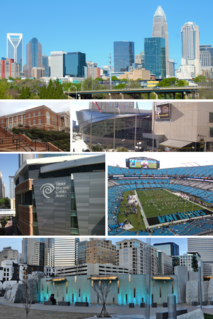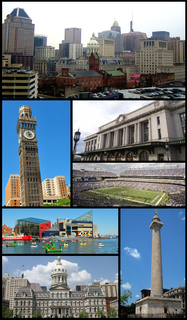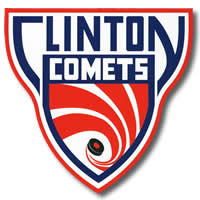
The Charlotte Checkers were an American ice hockey team in Charlotte, North Carolina, and played in the ECHL.

The Baltimore Skipjacks were a minor league professional ice hockey team from Baltimore, Maryland. The Skipjacks played eleven seasons as members of the American Hockey League, from 1982 until 1993. The team originated in 1979 as the Baltimore Clippers in the Eastern Hockey League, and were renamed in 1981 for one season in the Atlantic Coast Hockey League, before joining the AHL. During its existence, the Skipjacks reached the Calder Cup finals once, won a division title in 1984, and played at the Baltimore Civic Center for all fourteen of its seasons. The Skipjacks were one of three AHL teams to play in Baltimore, including the Baltimore Clippers, and the Baltimore Bandits.

The Baltimore Clippers were a minor league professional ice hockey team from in Baltimore, Maryland, playing in the Baltimore Civic Center. The Clippers were members of the American Hockey League from 1962 to 1976, and then played one season in the Southern Hockey League. The team was managed by Terry Reardon for its first fourteen seasons, and won three division titles, but were unable to capture a Calder Cup title. Baltimore began as a farm team for the New York Rangers, and helped develop Hall of Fame players including, Eddie Giacomin, Doug Harvey, Jacques Plante and Jean Ratelle. The Clippers also featured eight alumni, who are now members of the AHL Hall of Fame. The team name "Clippers", was used by two previous professional hockey teams in Baltimore, and paid homage to local history in the Baltimore Clipper, and the Port of Baltimore.

The Southern Hockey League was a low-level minor professional ice hockey league that operated from 1973 to 1977. The league was formed when the Eastern Hockey League split in two; the southern teams became the Southern Hockey League, and the northern teams became the North American Hockey League. It was the first professional hockey league to operate wholly within the Southern United States, and followed the establishment of the Atlanta Flames in the National Hockey League; and also the Richmond Robins and the Tidewater Wings in the American Hockey League. The Southern Hockey League was a feeder league for the recently started World Hockey Association. Tedd Munchak was appointed the league's first commissioner, and was owner of the Greensboro Generals. The championship trophy of the league was named the James Crockett Cup, after local figure Jim Crockett Sr. The league disbanded during its fourth season, when four of its seven teams folded due to financial issues.

The Hampton Gulls were a minor league professional ice hockey team based in Hampton, Virginia, from 1974 to 1978 at the Hampton Coliseum. The Gulls played three seasons in the Southern Hockey League, beginning in 1974. When that league folded in 1977, the Hampton played one season in the American Hockey League. The Gulls were a World Hockey Association farm team to the Cincinnati Stingers each season. John Brophy was team's only head coach during its existence. Hampton ceased operations on February 10, 1978, part way through its fourth season.
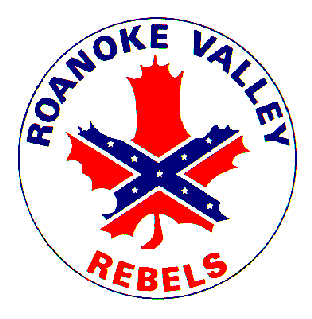
The Roanoke Valley Rebels were a minor league professional ice hockey team based in Roanoke, Virginia, that played in the Eastern Hockey League, and later the Southern Hockey League. The team was originally known as the Salem Rebels from 1967 to 1970, playing at the Salem Civic Center in nearby Salem, Virginia. Beginning in 1970, the Rebels began playing playing occasional games at the newer and larger Roanoke Civic Center.

The Charlotte Checkers are a minor-league professional ice hockey team based in Charlotte, North Carolina. They are members of the Atlantic Division of the Eastern Conference in the American Hockey League (AHL), and are the top minor-league affiliate of the Carolina Hurricanes of the National Hockey League (NHL). The Checkers play their home games at Bojangles' Coliseum. The current organization is the third team by this name; it succeeded a Checkers franchise which played in the ECHL from 1993 until the end of the 2009–10 ECHL season. The original Checkers team played in the city from 1956 to 1977, originally in the Eastern Hockey League and then in the Southern Hockey League. The franchise is one of six teams to replace and share a name with a predecessor franchise from a lower-tier league; the others are the Bakersfield Condors, Colorado Eagles, Ontario Reign, Rockford IceHogs, and San Diego Gulls.
The 1973–74 Southern Hockey League season was the first season of the Southern Hockey League. The league was formed when the Eastern Hockey League split in two; the southern teams became the Southern Hockey League, and the northern teams became the North American Hockey League. Four of the six founding members of the SHL came from the EHL, including the Charlotte Checkers, Greensboro Generals, Roanoke Valley Rebels, and the Suncoast Suns. Two expansion teams were added to complete the league, including the Macon Whoopees, and the Winston-Salem Polar Twins.
The 1974–75 Southern Hockey League season was the second season of the Southern Hockey League. On July 31, 1975, Jack Riley was announced as the new commissioner of the SHL, taking over for interim leader Gene Hawthorne, of the Roanoke Valley Rebels. The four existing teams returned from the previous season, joined by a fifth expansion team from Fayetteville, North Carolina. The new team was named after the Fayetteville Arsenal, and was scheduled to play at the Cumberland County Memorial Arena. In October 1974, owner Bill Raue moved the team, to Hampton, Virginia before playing any games, when availability of home ice dates became a problem. The new Hampton Gulls moved into the Hampton Coliseum recently vacated by the Virginia Wings of the American Hockey League. The five teams played a complete schedule of 72 games, with the Charlotte Checkers winning the regular season, and the playoffs.
The 1975–76 Southern Hockey League season was the third season of the Southern Hockey League. The five existing teams returned from the previous season, joined by a sixth expansion team from Norfolk, Virginia. The Tidewater Sharks joined the league owned by Virginia politician Dick Davis, playing at the Norfolk Scope. The six teams played a complete schedule of 72 games, with the Charlotte Checkers winning the regular season, and the playoffs.
The 1976–77 Southern Hockey League season was the fourth and final season of the Southern Hockey League. The Roanoke Valley Rebels ceased operations, and two new teams were added for the season. The Baltimore Clippers transferred from the American Hockey League, and the Richmond Wildcats were an expansion team. Both the Richmond Wildcats and Greensboro Generals folded on January 3, 1977 due to financial problems. On January 7, the Tidewater Sharks folded after missing payroll, and the Winston-Salem Polar Twins pulled the Polar Twins out of the league. The remaining three teams considered adding a fourth team, but the league was short on funds when Greensboro and Winstom-Salem defaulted on $25,000 loans. The league also considered playing a round-robin tournament to determine a champion, or develop an interlocking schedule with either the North American Hockey League or the International Hockey League. On January 22, 1977, both the NAHL and IHL rejected the proposal, and the final game was played on January 31, 1977, although the league planned on playing a 1977–78 season.
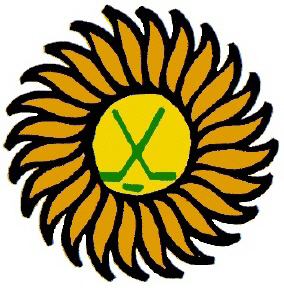
The Suncoast Suns were a minor league professional ice hockey team based in St. Petersburg, Florida, and played home games at the Bayfront Center. The Suns began in the Eastern Hockey League in 1971, and were known as the St. Petersburg Suns for the first season. The team adopted the Suncoast Suns name in 1972, and was a founding member of the Southern Hockey League in 1973. The Suns ceased operations in December 1973, partway through its third season.

The Macon Whoopees were a minor league professional ice hockey team based in Macon, Georgia, and played home games at the Macon Coliseum. The Whoopees played in the Southern Hockey League, and were the second professional hockey team in Georgia. The attempt in Macon to expand hockey southward failed, as the team ceased operations before completion of the 1973–74 season. Hockey did not return to Macon until 1996, when the name was revived by the Macon Whoopee in the Central Hockey League. The original Whoopees team was named after the song "Makin' Whoopee" by Gus Kahn, and is the subject of the book Once Upon A Whoopee: A Town, A Team, A Song, A Dream, by Ed Grisamore and Bill Buckley.

The Greensboro Generals were a minor league ice hockey team based in Greensboro, North Carolina. Greensboro was part of the Eastern Hockey League from 1959 to 1973, and then played in the Southern Hockey League from 1973 to 1977. The team was founded when the Troy Bruins of the International Hockey League were relocated by owner Ken Wilson and admitted to the EHL, to play in the recently built Greensboro Coliseum.
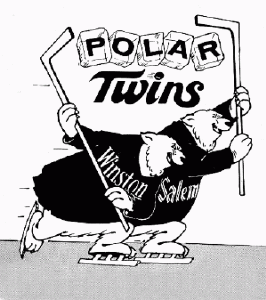
The Winston-Salem Polar Twins were a minor league professional ice hockey team, based in Winston-Salem, North Carolina. The team was a founding member of the Southern Hockey League in 1973, and played home games at the Winston-Salem Memorial Coliseum. The initial owners of the team were a group of 15 investors, led by Ed Timmerman and Eldridge Hanes. In the 1973–74 season, Winstom-Salem finished fourth place, and lost in the first round of the playoffs under player-coach Don Carter. In 1974, Forbes Kennedy was brought in to coach, and improved results two years in a row, despite losing in the first round of the playoffs both seasons. In December 1975, the Polar Twins were sold to Jim Crockett Jr. Player-coach Ron Anderson took over in the fourth season, and the team was in last place in January. On January 7, 1977, during the team's fourth season, Crockett announced he was folding the team.
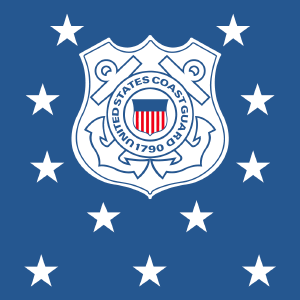
The United States Coast Guard Cutters were a senior amateur ice hockey team operated by the United States Coast Guard Yard on Curtis Bay, Baltimore. The team played in the Eastern Amateur Hockey League for parts of two seasons, using Carlin's Iceland for home games. The Cutters were a separate team from the established Coast Guard Bears of the United States Coast Guard Academy.
The Baltimore Clippers were a minor league professional ice hockey team from in Baltimore, Maryland, playing in the Eastern Amateur Hockey League at Carlin's Iceland. The team began play in the 1944–45 season known as the Baltimore Blades, and were renamed the Clippers from 1946 to 1949. The team name paid homage to local history in the Baltimore Clipper, and the Port of Baltimore. The Clippers ceased operations during the 1949–50 season.
Gordon Tottle is an American retired ice hockey defenseman, who played 456 games in the American Hockey League with the Springfield Indians. In his career, he played 18 seasons of professional ice hockey, and was named a first-team all-star in both the American Hockey League, and the Eastern Hockey League.
Gregg Pilling is a Canadian retired professional ice hockey player and coach. He was named coach of the year in the International Hockey League in 1977–78, winning the Fred A. Huber Trophy as regular season champions. He also won coach of the year awards in Southern Hockey League, and North American Hockey League, while guiding his teams to league championships. Pilling made headlines as a coach for his colourful in-game protests and ejections. Prior to coaching, he had a brief playing career, including a 1963 Memorial Cup championship with the Edmonton Oil Kings, and was voted the most valuable player in his final full season as a player.

